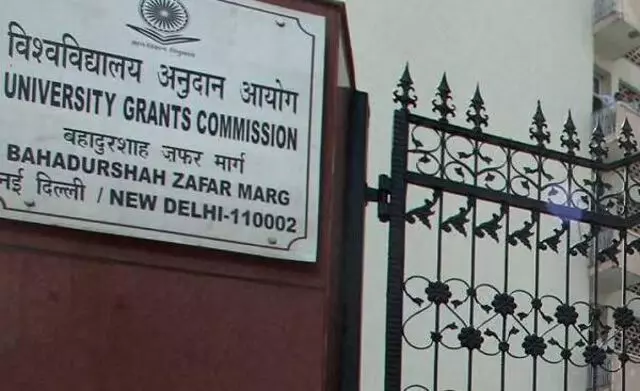UGC directs varsities, HEIs to dispel ‘myths’ surrounding new criminal laws

New Delhi: The University Grants Commission (UGC) has issued directives to universities and Higher Education Institutions (HEIs) nationwide, urging them to communicate information about new criminal laws and dispel any misconceptions surrounding them.
Among the misconceptions highlighted by the UGC are concerns that the new laws pose a threat to individual freedoms and seek to establish a pervasive “police state.” Additionally, there is misinformation regarding the retention of sedition provisions under the ‘Deshdroh’ label, as well as false claims suggesting these legislations condone police torture.
In its communication to universities and HEIs, the UGC has provided pamphlets addressing these misconceptions alongside accurate information. Manish Joshi, Secretary of the UGC, stated, “Higher Educational Institutions are encouraged to raise awareness about the Bharatiya Nyaya Sanhita, 2023, addressing the topics outlined in the pamphlets through various means such as displays, distribution of flyers, and organising seminars featuring legal experts including serving and retired lawyers and judges, along with faculty members.”
HEIs are also instructed to report the details of their awareness activities to the Ministry of Education for onward transmission to the Home Ministry, Joshi added. The Bharatiya Sakshya Sanhita, 2023, The Bharatiya Nagarik Suraksha Sanhita Bill, 2023, and The Bharatiya Nyaya Sanhita, 2023 were ratified by both Houses of Parliament during the Winter Session and received presidential assent from President Droupadi Murmu.
These legislations are set to replace the Indian Evidence Act, 1872, the Criminal Procedure Code, 1973, and the Indian Penal Code (IPC) respectively.
The UGC’s pamphlets address various misconceptions, including the notion that the new criminal laws curtail individual freedoms and seek to establish a police state. They clarify that these laws are not mere rehashes of existing draconian measures. Additionally, concerns regarding an extension of custody from 15 to 90 days enabling police torture are addressed. The term ‘sedition’ is replaced with ‘Deshdroh’ in Bharatiya Nyaya Sanhita 2023, and harsh penalties for hit-and-run cases are outlined.
The new criminal laws introduce 20 new offences under the Bharatiya Nyaya Sanhita, 2023, while 19 provisions from the IPC have been removed. Sentencing has been increased for 33 offences, fines have been augmented for 83 offences, and mandatory minimum sentencing has been introduced for 23 offences. Six offences now carry the punishment of ‘community service.’
Significant changes in the new laws include defining ‘child,’ expanding the definition of ‘gender’ to include transgender individuals, incorporating electronic records into the definition of ‘document,’ and broadening the definition of ‘movable property’ to encompass property of all types.
New chapters addressing offences against women and children, as well as ‘inchoate offences’ such as attempts, abetment, and conspiracy, have been introduced. Beggary is now recognized as a form of exploitation for trafficking.
Several new offenses, including organised crime, terrorist acts, petty organized crime, hit-and-run incidents, mob lynching, hiring children for criminal activities, sexual exploitation of women through deceit, snatching, abetment outside India, acts endangering India’s sovereignty, integrity, and unity, and dissemination of false or fake news, have been included.with agency inputs




